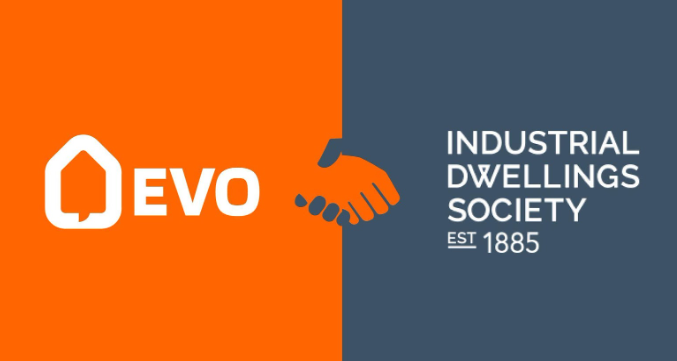
|
Highlights:
|
Improving the energy efficiency of the UK’s social housing stock is a hot topic at the moment.
Not only will it help the government hit its carbon-neutral targets, but it will also help lessen the impact of rising fuel costs on some of the country’s most vulnerable people.
But according to research by Inside Housing, the total cost of decarbonising Britain’s social housing will be £104bn.
The Warm Homes: Social Housing Fund aims to help tackle this by helping housing providers upgrade the energy performance of their properties.
It replaces the previous Social Housing Decarbonisation Fund and covers what would have been delivered under Wave 3 of that scheme.
Applications for the fund are now closed, and the successful applicants have been announced. Projects for this wave will be delivered by September 2028.
This article explains what the Warm Homes: Social Housing Fund is and what alternatives are available to housing providers, now that the current round has closed.
What Is the Warm Homes: Social Housing Fund?
The Warm Homes: Social Housing Fund finances the upgrade of energy performance in social homes across the UK.
The funding aims to bring as many social housing properties as possible up to an Energy Performance Certificate (EPC) rating of C, lowering carbon emissions and reducing fuel poverty for tenants.
The scheme prioritises a "fabric first" approach, which focuses on improving the building's structure to make it more energy-efficient before installing new heating systems.
The grant can be used to fund a range of improvements, including insulation for cavity, solid, and loft walls, as well as new energy-efficient windows and doors.
Low-carbon heating systems like heat pumps, and renewable energy sources like solar panels can also be installed; however, this is only permitted after the property's fabric has been improved.
This latest round of grant funding distributed £1.29 billion, with housing providers able to apply for up to £7,500 in matched funding per home. Additional money was also available for installing low carbon heating systems.
The scheme was oversubscribed by more than £1bn, proving the demand for energy efficiency upgrades amongst registered providers.
In some parts of England, the central government is handing over control of the Warm Homes: Social Housing Fund to regional authorities.
This means that social housing providers in regions like Greater Manchester Combined Authority, Liverpool City, the North East, South Yorkshire, West Midlands Combined Authority and West Yorkshire will soon apply to their mayoral combined authority for funding instead of to the national government.
This is because local leaders are better-placed to understand and manage the specific needs and projects in their area.
When Will the Next Round of Funding be Available?
The next round of funding has not yet been announced. While there is no official timeline for the Social Housing Fund Wave 4, a senior government official has publicly expressed confidence that additional funding will be secured for future rounds of the scheme.
What other schemes are available?
If you missed the Warm Homes: Social Housing Fund deadline or you still need further funding for energy efficiency upgrades, there are a few options available to you:
Warm Homes: Local Grant
The Warm Homes: Local Grant is the successor to the Home Upgrade Grant (HUG). Local authorities manage the scheme, which focuses on upgrading owner-occupied and private rented homes.
It targets low-income households in homes that are not connected to the mains gas grid and have low EPC ratings.
A portion of the funding can go towards housing providers; however, the local authority decides how much and which organisations get it.
Energy Company Obligation (ECO4)
This scheme requires large energy suppliers to deliver energy efficiency measures to low-income households to help tackle fuel poverty.
ECO4 is the current phase and will run until 2026. Social housing providers can access funding under this scheme if their properties meet the eligibility criteria, particularly homes with an EPC rating of E, F, or G and whose residents are in receipt of certain benefits.
Great British Insulation Scheme (GBIS)
This scheme is focused on a single measure: insulation. It aims to make homes with low EPC ratings (D or below) more efficient and is open to a wide range of properties, including social housing. Funding is available for measures like loft and cavity wall insulation. GBIS is delivered through energy companies.
Boiler Upgrade Scheme (BUS)
This scheme is a grant to help property owners switch from fossil fuel heating systems (like gas or oil boilers) to low-carbon alternatives such as heat pumps. Social housing providers are eligible to apply for this grant on behalf of their residents. The current BUS offers up to £7,500 towards the cost of a heat pump.
Manage Energy Efficiency Upgrades With EVO
The deadline for applying for the Social Housing Decarbonisation Fund may have passed, but the projects it has funded are only just starting.
This means that social housing associations across the country will have more projects to manage across their properties than ever.
EVO can help make this easier. Our digital platform brings together landlords, residents and tradespeople all in one place.
-
Our Landlord Dashboard allows you to see all of your properties, including details of residents , repairs, and service history all in one place. You can quickly access a network of accredited trades to install new energy-efficiency measures in your properties.
-
Our Living App enables you and your social housing tenants to communicate in a way that is convenient and unobtrusive. This makes it easy to request energy efficiency upgrades and manage installation appointments.
Find out more, read how EVO helps social housing providers to manage trades, tenants and compliance.
PHOTO BY EVO


